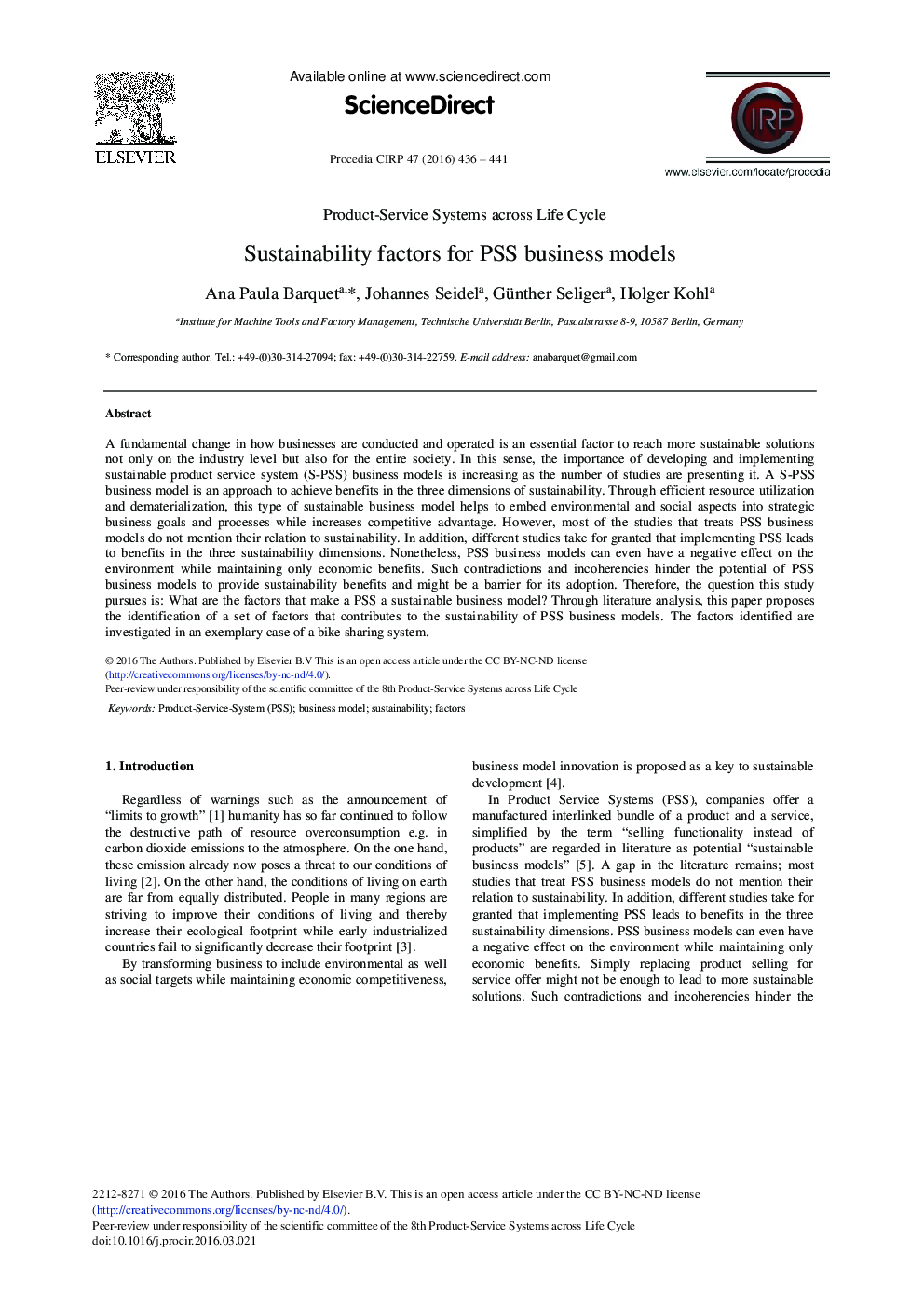| Article ID | Journal | Published Year | Pages | File Type |
|---|---|---|---|---|
| 1698336 | Procedia CIRP | 2016 | 6 Pages |
A fundamental change in how businesses are conducted and operated is an essential factor to reach more sustainable solutions not only on the industry level but also for the entire society. In this sense, the importance of developing and implementing sustainable product service system (S-PSS) business models is increasing as the number of studies are presenting it. A S-PSS business model is an approach to achieve benefits in the three dimensions of sustainability. Through efficient resource utilization and dematerialization, this type of sustainable business model helps to embed environmental and social aspects into strategic business goals and processes while increases competitive advantage. However, most of the studies that treats PSS business models do not mention their relation to sustainability. In addition, different studies take for granted that implementing PSS leads to benefits in the three sustainability dimensions. Nonetheless, PSS business models can even have a negative effect on the environment while maintaining only economic benefits. Such contradictions and incoherencies hinder the potential of PSS business models to provide sustainability benefits and might be a barrier for its adoption. Therefore, the question this study pursues is: What are the factors that make a PSS a sustainable business model? Through literature analysis, this paper proposes the identification of a set of factors that contributes to the sustainability of PSS business models. The factors identified are investigated in an exemplary case of a bike sharing system.
